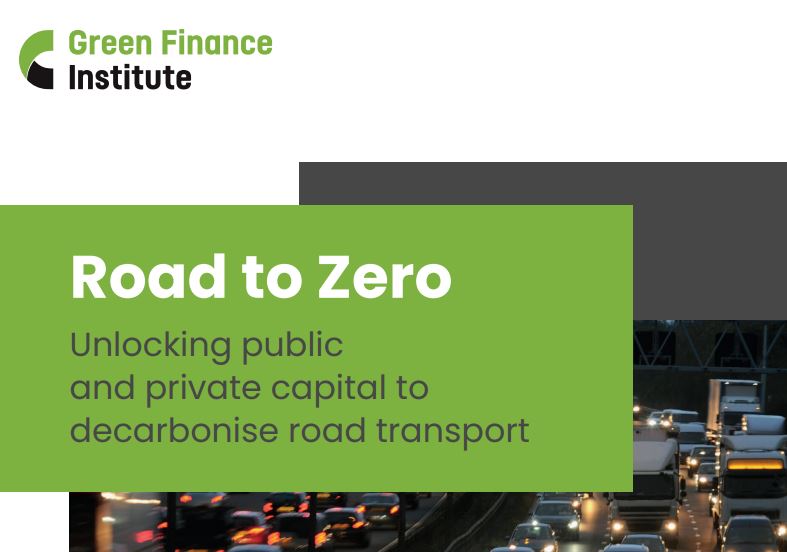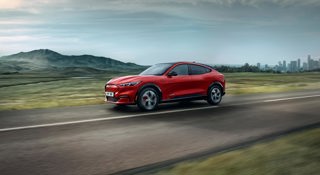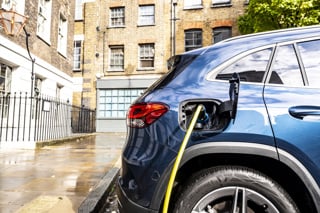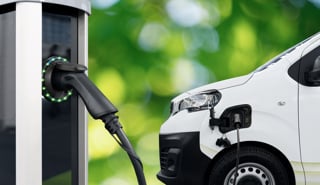The Green Finance Institute has highlighted 18 solutions to overcome the financial barriers to decarbonising road transport in the UK, by 2030, in a new report.
It covers two areas: consumer uptake of electric vehicles (EVs) and EV charging infrastructure.
The report states that without financial solutions that can facilitate an inclusive transition to EVs, reduce the perceived risks faced by financial providers offering consumer finance to switch, and facilitate the roll out of charging infrastructure needed for EVs, the market may fail to complete an orderly transition to all-new EV sales by 2030.
Dr Rhian-Mari Thomas OBE, chief executive of the Green Finance Institute, said: “Decarbonising road transport, key to meeting our national emissions targets, is a challenge that’s too large and interconnected for any one part of the market to solve alone. We need radical collaboration through public and private partnerships across finance and industry focused on tackling the barriers and unlocking the estimated £150bn of investment that’s required to accelerate the pace of change.”
The Government’s Net Zero Strategy outlines a number of new policies to decarbonise the transport sector. These include a zero-emission vehicle mandate, setting targets that require a certain percentage of manufacturers’ new car and van sales to be zero emission each year from 2024.
The Transport Decarbonisation Plan, launched in July, laid out a range of measures to ensure the vehicle charging network is able to keep up with demand during the transition to EVs; by 2035, the government expects there will be around 6,000 high powered charge points across England’s strategic road network.
The financial solutions proposed by the Green Finance Institute’s report have been developed by the Coalition for the Decarbonisation of Road Transport (CDRT), contributed to by more than 200 experts from across the sector. The solutions are designed to encourage public and private partnerships across transport finance, industry, and local and central government.
Lauren Pamma, programme director for the CDRT, said: “Our inaugural report has identified a number of barriers to EV adoption by consumers, and the roll out of public charging infrastructure which, if not overcome, risk disrupting the orderly transition needed to move the UK towards zero emission motoring. Our solutions have been co-designed with members to unlock those barriers and accelerate the pace of change.”
For the Government to achieve its vision, the CDRT says finance from the private as well as public sector will be required.
Solutions put forward in the CDRT’s report to support consumer purchase and leasing of EVs include:
- Increasing loan capacity in the market through securitisation of used EV loans to allow aggregation and sale on secondary markets
- standardised battery health certification to give confidence to buyers in the used car market
- bundled vehicle and infrastructure financing products enabling consumers through simplifying purchasing by making one monthly payment for EV costs, including the EV itself, chargepoints, and energy.
UK-wide charging infrastructure is also of critical importance, according to the CDRT, and requires co-ordination and collaboration between local authorities, data providers, chargepoint operators and energy companies. Financial products can de-risk investment in areas where the business case for installation is currently commercially uncompelling in the short-term, resulting in an inequitable and uneven roll-out.
Solutions put forward in the report to boost a UK-wide EV charging infrastructure include:
- provision of utilisation-linked loans for installing more widely distributed chargepoints
- a transport infrastructure facility that uses public and private finance to de-risk investments where there are market failures in the short term
- creation of local authority toolkits to speed up and simplify the process of creating an extensive and reliable charging infrastructure.
BVRLA chief executive, Gerry Keaney, said: “We are at a pivotal moment in the climate emergency and have a collective responsibility to defeat the challenges we’re facing. The Government has outlined its decarbonisation plans and the private sector must match those ambitions.
“Most early EV adoption is coming from the fleet sector, where tax incentives are driving huge demand for company and salary sacrifice cars. Elsewhere, patchy infrastructure and a less convincing consumer offering are holding EV uptake back.
“We support the work of the CDRT, and the innovative solutions put forward could help to accelerate consumer adoption of electric vehicles and the rollout of essential infrastructure. These solutions help to reduce the risk to the private sector, which will encourage more action. The BVRLA is looking forward to further collaboration with public and private partners to make the exciting solutions presented in this report a success.”





















Login to comment
Comments
No comments have been made yet.